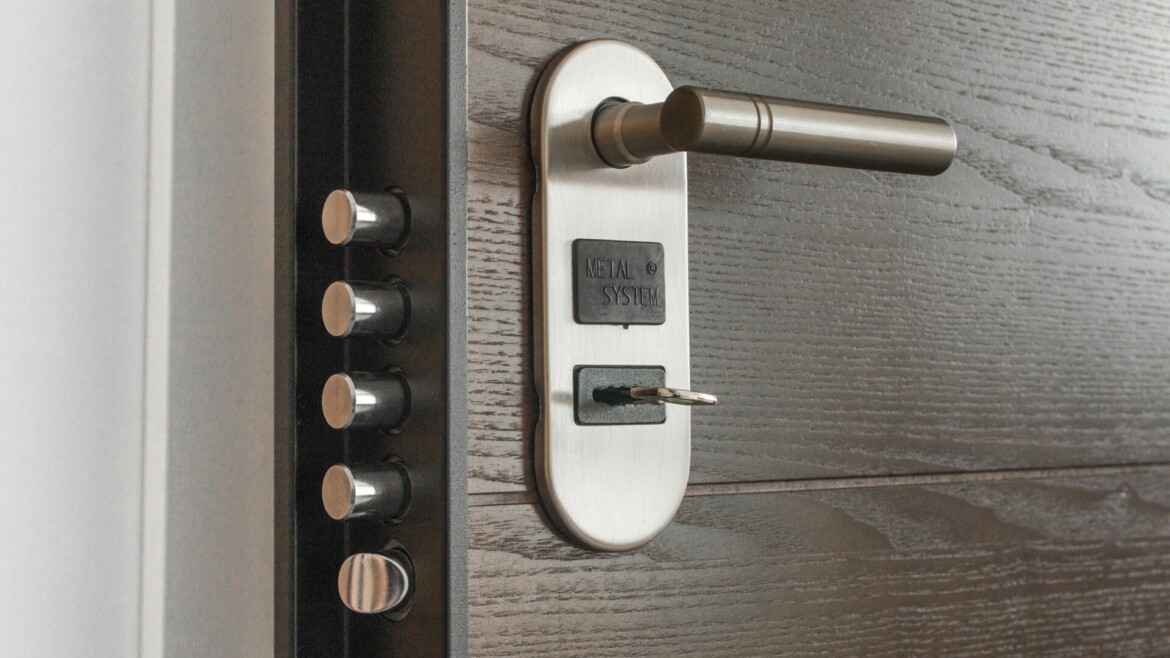What To Do When Your Key Breaks In The Lock
By: River City Keys Locksmith Edmonton
Having a key break off in the lock is a frustrating and often stressful situation that can leave you feeling stuck, especially if you’re in a hurry. However, with the right approach and tools, you can resolve the issue without causing damage to the lock or needing a full replacement.
In this article, we will cover what to do when your key breaks in the lock, why it happens, how to remove it, and preventive tips to avoid future incidents.
Let’s get right into it!
Why Keys Break In Locks: Common Causes
Wear And Tear Over Time
Like all things, keys and locks are subject to wear and tear over time. As keys are inserted into and removed from locks repeatedly, the metal can weaken, making them more likely to snap under pressure. Similarly, locks can deteriorate, causing the key to jam or stick, leading to breakage.
Using The Wrong Key Or Forceful Turning
A common cause of key breakage is using the wrong key for a lock or turning the key with too much force. Even though it may feel like the key should fit, forcing a key that doesn’t belong to the lock can cause it to break. When a key doesn’t turn easily, applying excessive pressure is a recipe for trouble.
Cold Weather And Metal Fatigue
In colder climates like Canada, freezing temperatures can cause metal to become brittle. When a lock is exposed to freezing weather, both the key and the internal components of the lock can become stiff, increasing the chances of the key breaking off when trying to unlock the door. Metal fatigue, worsened by these conditions, makes keys more prone to breaking.
Immediate Steps To Take When A Key Breaks In The Lock
Stay Calm And Assess The Situation
The first thing to do when your key breaks in the lock is to stay calm. It’s easy to panic, but taking a deep breath will help you think clearly. Carefully assess how much of the key is stuck in the lock and whether part of the key is still visible or not.
Don’t Force The Broken Key Further Into The Lock
One of the worst things you can do is try to force the remaining part of the key further into the lock. Doing so can push the broken piece deeper inside, making it harder to extract and potentially damaging the lock mechanism itself.
Determine How Much Of The Key Is Stuck In The Lock
If part of the key is still sticking out of the lock, your chances of removing it yourself are higher. However, if the key is completely inside the lock, you may need special tools or professional assistance.
Tools You Can Use To Remove A Broken Key
Tweezers
Tweezers can be a helpful tool if the broken piece of the key is still protruding from the lock. Make sure to use tweezers that can grip the key without pushing it further inside.
Needle-Nose Pliers
Needle-nose pliers offer a firm grip on the broken key, especially if there is enough of the key sticking out to grab onto. They provide more leverage than tweezers, making them an ideal tool for pulling out the broken piece.
Broken Key Extractor Tool
A broken key extractor tool is specifically designed for this task. These tools have thin hooks that slide into the lock alongside the broken key, allowing you to catch the edges and pull the key out. You can find these tools at hardware stores or online.
Super Glue (With Caution)
In certain situations, using super glue can work if part of the key is still visible. By applying a small amount of super glue to the end of the broken key and attaching it to the remaining part, you can carefully pull out the key. However, this method must be used with caution, as glue can damage the lock if it spreads to other components.
DIY Methods To Remove A Broken Key From A Lock
The Tweezers Method
If there’s enough of the broken key sticking out of the lock, you can try to extract it with tweezers. Insert the tweezers carefully around the key and gently pull it straight out. Be cautious not to apply too much pressure, as this could push the key further inside.
The Broken Key Extractor Method
Using a broken key extractor tool is one of the most effective DIY methods. Insert the tool into the lock so that it catches on the ridges of the broken key. Once you feel the tool hook onto the key, slowly and steadily pull it out. This method works best if you have experience using such tools, but it’s manageable for beginners too.
Using Super Glue To Extract The Key
This method requires patience. Apply a small amount of super glue to the end of the visible part of the broken key. Attach the other part of the key to the glue and wait for it to bond. Once the glue dries, gently pull the key out. Be careful not to let the glue seep into the lock mechanism, as this could cause further complications.
Using A Jigsaw Blade Or Paper Clip As An Improvised Extractor
If you don’t have a broken key extractor, a small jigsaw blade or a paper clip can work as an improvised tool. Insert the blade or paper clip into the lock, catching the edges of the key, and gently pull it out. This method requires a steady hand and patience but can be a lifesaver in a pinch.
When DIY Solutions Fail: When To Call A Locksmith

Understanding When Professional Help Is Needed
If you’ve tried DIY solutions and the key remains stuck, it’s time to call a locksmith. Continuing to attempt removal without the proper tools can damage the lock and increase repair costs. A locksmith has specialized tools designed for safely removing broken keys without harming the lock.
How Locksmiths Use Specialized Tools
Locksmiths use professional tools like broken key extractors, lock picks, and lubricants to safely remove the key. They also have the expertise to assess whether the lock has been damaged and needs repair or replacement.
Locksmith Costs For Key Extraction In Canada
The cost of hiring a locksmith to remove a broken key in Canada varies depending on the time of day and location. On average, you can expect to pay between $75 and $150 for key extraction services. Emergency services during weekends or after hours may cost more.
Preventing Future Key Breakage
Regular Maintenance Of Locks And Keys
Regularly maintaining your locks and keys can prevent them from becoming worn or stiff. Periodically lubricating the locks and inspecting your keys for signs of wear can help extend their lifespan.
Avoiding Using Excessive Force On Keys
If your key doesn’t turn easily, don’t force it. Instead, gently remove it and inspect the lock for any issues. Forcing the key can not only break it but also damage the lock’s internal mechanism.
Lubricating Locks To Prevent Sticking
One of the easiest ways to prevent key breakage is to lubricate your locks regularly. Using a graphite lubricant or silicone-based spray can keep the lock’s internal components moving smoothly, reducing the chances of the key becoming stuck.
How To Repair Or Replace A Broken Key
Can You Repair A Broken Key?
In most cases, a broken key cannot be repaired, especially if it has snapped completely in half. However, a locksmith can often create a duplicate key from the broken pieces or code on file.
Key Cutting And Duplication Services
If you’ve broken a key, it’s important to have a new one made. Many hardware stores and locksmiths offer key cutting and duplication services. If you have the broken pieces, these can often be used to make a new key.
Making A Spare Key To Prevent Future Issues
Always having a spare key is one of the best ways to avoid getting locked out due to a broken key. Ensure you have a duplicate made and keep it in a safe, accessible place for emergencies.
How To Tell If Your Lock Needs To Be Replaced
Signs Your Lock Is Damaged Beyond Repair
If your lock is damaged beyond repair—whether due to a broken key or other issues—there will be noticeable signs. If the lock sticks frequently, turns inconsistently, or shows visible wear, it’s time for a replacement.
Choosing The Right Lock Replacement For Your Needs
When replacing a lock, consider both security and ease of use. High-quality deadbolts, smart locks, or keypad locks are great options for improving home security while ensuring durability.
When To Upgrade To A More Secure Locking System
If your home’s security is a concern, upgrading to a more secure locking system can provide peace of mind. Modern locks, such as smart locks, offer enhanced security features, including remote access, which can prevent future issues with keys breaking.
Tips For Avoiding Key Breakage In The Future
Invest In Quality Keys And Locks
Using high-quality materials for your keys and locks can prevent wear and tear, reducing the likelihood of breakage. Cheap or poorly made keys and locks are more prone to failure over time.
Regularly Inspect Your Keys For Signs Of Wear
Inspect your keys periodically to check for any signs of bending, cracks, or thinning. If you notice any wear, it’s a good idea to replace the key before it snaps off in the lock.
Store Spare Keys In Safe And Accessible Places
Always have a spare key available in a secure location. Consider giving a spare key to a trusted neighbour or family member, or store it in a secure key safe near your home.
FAQs
1. What Should I Do First If My Key Breaks In The Lock?
The first thing you should do is remain calm. Avoid forcing the key further into the lock and assess how much of the key is visible. Then, try using a pair of tweezers or a broken key extractor to remove it.
2. Can I Use Household Items To Remove A Broken Key?
Yes, household items like tweezers or needle-nose pliers can sometimes help remove a broken key. However, using improvised tools like paper clips or jigsaw blades should be done with caution.
3. Is It Cheaper To Remove A Broken Key Myself Or Call A Locksmith?
Removing the key yourself can save money, but it depends on the tools you have and your experience. If DIY methods fail, it’s best to call a locksmith to avoid damaging the lock.
4. Can A Locksmith Make A New Key From A Broken One?
Yes, locksmiths can often make a new key from the broken pieces or from the code on file, depending on the type of key and lock.
5. How Long Does It Take To Remove A Broken Key From A Lock?
It typically takes a locksmith between 10 to 30 minutes to remove a broken key, depending on the complexity of the situation and the condition of the lock.
6. What Type Of Lubricant Is Best For Locks?
Graphite-based lubricants are ideal for locks, as they keep the mechanism moving smoothly without attracting dirt or debris.
7. Can I Prevent My Key From Breaking In Cold Weather?
To prevent key breakage in cold weather, ensure that your lock is lubricated to avoid freezing. Gently turn the key without applying excessive force, especially in colder temperatures.
8. What Should I Do If The Key Breaks Completely Inside The Lock?
If the key is completely inside the lock, it may be difficult to remove without the proper tools. In this case, it’s best to contact a locksmith to extract the key safely.
9. Are Smart Locks A Good Solution For Avoiding Key Breakage?
Yes, smart locks eliminate the need for physical keys, reducing the risk of key breakage. These locks can be controlled via smartphones, keypads, or fingerprint sensors, offering convenience and security.
10. How Much Does It Cost To Replace A Lock After A Key Breaks?
Lock replacement costs vary depending on the type of lock and whether you hire a locksmith. On average, replacing a standard lock costs between $100 and $300 in Canada.
Conclusion
Dealing with a broken key in a lock can be a frustrating experience, but with the right approach, it can be resolved without major issues. By understanding the common causes of key breakage and knowing how to use the proper tools for removal, you can avoid damaging the lock and prevent future incidents.
Regular lock maintenance, using high-quality keys, and keeping spares in a safe place are all effective ways to reduce the risk of key breakage. In situations where DIY methods fail, it’s best to contact a professional locksmith to ensure the problem is handled efficiently and safely.
If you have any questions about our article “What To Do When Your Key Breaks In The Lock” or need locksmith services in Edmonton contact us at info@rckeys.com or connect with us on social media.



